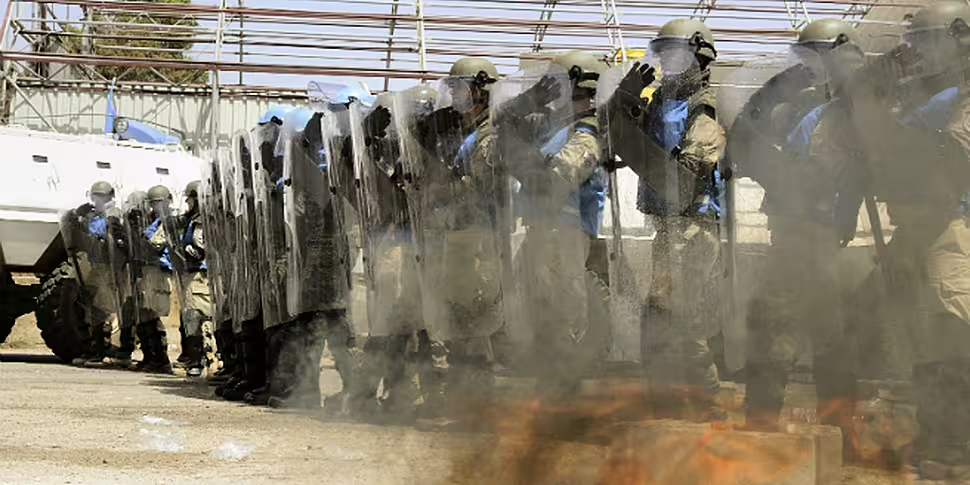The Tánaiste and Minister for Foreign Affairs says no EU member state will be send arms to Syria straight away. Eamon Gilmore also said he is concerned over further militarisation of the conflict.
European Union Foreign Ministers last night agreed to lift an arms embargo in order to supply weapons to Syrian rebels. The EU will however maintain a range of sanctions against the Assad regime that had been set to expire Friday at midnight.
British Foreign Secretary William Hague announced the agreement after more than 12 hours of tough talks. The proposal by France and Britain to lift the embargo had the support from the US.
However several EU states - including Ireland - are opposed to arming Syrian rebels fearing it could escalate the conflict.
Mr. Hague stressed Britain has "no immediate" plans to supply weapons to rebels but he welcomed the outcome of the talks. The move signals the end of a united European foreign policy on the issue.
Qatar and Saudi Arabia are already arming opposition forces. Britain and France may now make a unilateral decision to go ahead and get involved. However diplomats said there is agreement that EU governments will refrain from sending arms to Syria for now.
Financial and economic sanctions against the Assad government were extended for another year at the meeting.
Speaking in Brussels, Mr. Gilmore said arms will only be provided in exceptional circumstances.
Reluctance to increase arms
Several of the 27 EU nations were reticent about more weapons being sent into a conflict zone that has already seen the deaths of nearly 100,000 people.
"Quite a lot of arms are already going to the wrong hands," said Dutch Foreign Minister Frans Timmermans. "The parties to the conflict don't have a shortage of arms, frankly."
Before the meeting Anna Macdonald, head of arms control at Oxfam, warned that supplying weapons would mean "adding fuel to the fire" in Syria.









